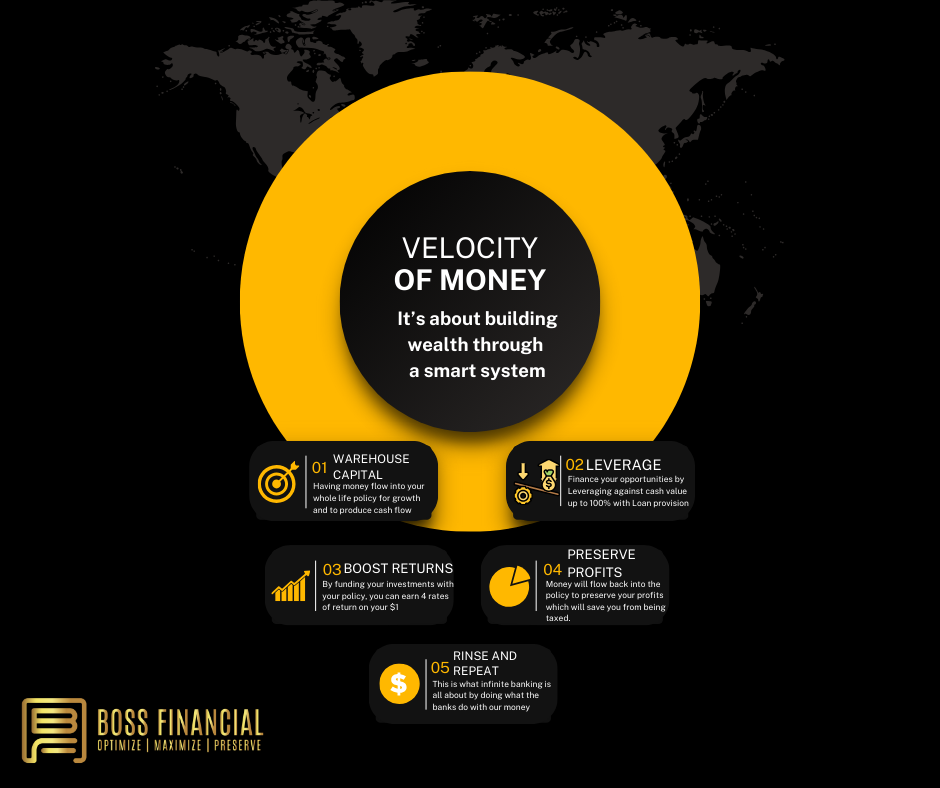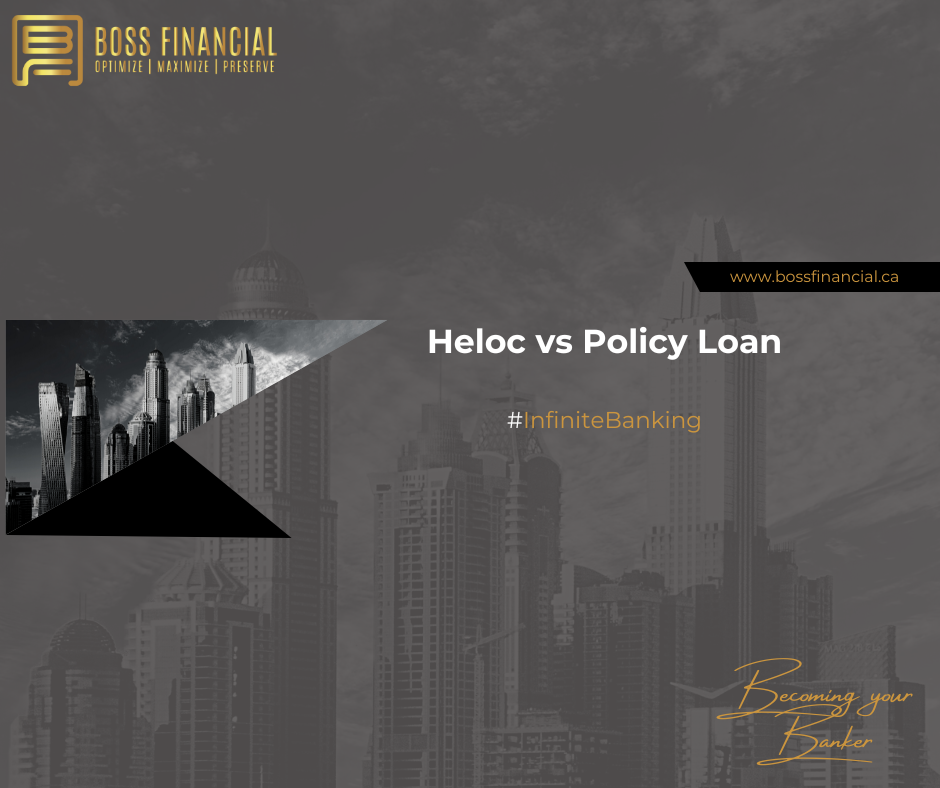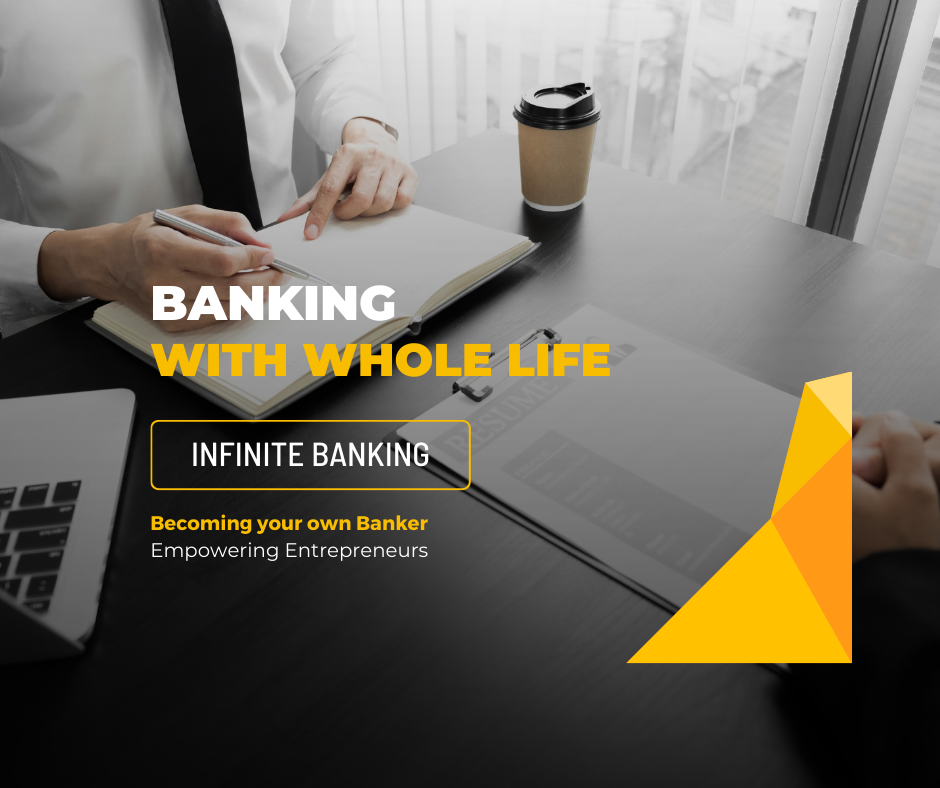In the world of entrepreneurship, building wealth is a pursuit as old as time. The path to financial success often entails a combination of innovation, perseverance, and strategic decision-making. One of the most intriguing strategies emerging in recent years is the Infinite Banking Concept (IBC). This financial system offers a unique approach to building and managing wealth, focusing on increasing the velocity of money, and it’s quickly gaining traction among entrepreneurs. In this blog, we’ll delve into the reasons why entrepreneurs should consider implementing the Infinite Banking Concept to enhance their financial growth.
Understanding the Infinite Banking Concept
Before we dive into the benefits, let’s clarify what the Infinite Banking Concept entails. IBC is not a new investment opportunity, but rather a sophisticated banking strategy that leverages whole life insurance policies. It was popularized by R. Nelson Nash in his book “Becoming Your Own Banker” and centers around the idea of individuals becoming their own bankers.
Here’s a brief overview of how IBC works:
- Whole Life Insurance: Entrepreneurs purchase whole life insurance policies that offer a cash value component. These policies are often criticized for their relatively lower returns compared to other investments, but the cash value is where IBC works its magic.
- Build Cash Value: As you pay your insurance premiums, a portion goes toward the cost of insurance, and the rest accumulates in the cash value account. Over time, the cash value grows steadily and is accessible through loans against the policy.
- Borrow and Repay: You can borrow money from the cash value account and use it for various purposes, including business investments or personal expenses. The unique aspect of IBC is the idea of becoming your own banker, meaning you control the loans and repayments.
- Infinite Banking Loop: When you repay the loans, the money goes back into your cash value account, continuing the cycle. This allows you to recapture the interest and keep your money in motion, thus increasing the velocity of your money.
Now, let’s explore why this concept is especially appealing to entrepreneurs.
- Control and Flexibility
Entrepreneurs thrive on control, and IBC aligns perfectly with this mindset. With traditional banks, you’re subject to their rules, interest rates, and approval processes. With IBC, you’re in the driver’s seat. You decide when to take a loan, how much to borrow, and what to invest in. This flexibility can be a game-changer, particularly when you spot an exciting business opportunity that requires immediate action.
- Tax Advantages
The tax benefits of IBC are another enticing factor for entrepreneurs. The growth of cash value within the whole life insurance policy is generally tax-deferred, meaning you don’t pay taxes on the gains. When you borrow against your cash value, the loan proceeds are not considered taxable income. This can be a significant advantage for entrepreneurs looking to minimize their tax liability.
- Asset Protection
Entrepreneurs often face the risk of legal liabilities in their business endeavors. One of the advantages of using IBC is the protection it provides to your cash value. In many jurisdictions, the cash value of a life insurance policy is shielded from creditors and lawsuits. This can offer peace of mind, knowing that your hard-earned wealth is less vulnerable to external threats.
- Consistent Growth
While the returns on the cash value component of whole life insurance policies may not be as high as some other investments, they come with a crucial characteristic for entrepreneurs: stability. IBC offers a safe and predictable way to grow your wealth. In a world where entrepreneurship often involves a rollercoaster of financial ups and downs, having a consistent and stable financial vehicle can be a lifeline.
- Infinite Banking Loop
The heart of IBC is the infinite banking loop, where your money continues to work for you. Instead of relying on traditional banks, you use your own money to finance your investments and expenses. This approach ensures that your dollars are always at work, leading to the increased velocity of money – a critical factor in building wealth efficiently.
- Long-Term Planning
Entrepreneurs often have long-term financial goals, including retirement and wealth preservation. IBC is an excellent tool for this purpose. Over time, your cash value can grow significantly, providing a stable source of income during your retirement years. This long-term planning is an integral part of a comprehensive wealth-building strategy.
- Generational Wealth
Entrepreneurs with a visionary outlook aim not only to secure their own financial future but to create a legacy for their descendants. IBC’s ability to pass on the cash value and its benefits to the next generation is a compelling reason for entrepreneurs to consider this concept. By doing so, you can set your family on a path to continued financial prosperity.
- Peace of Mind
Entrepreneurship can be a high-stress endeavor. The Infinite Banking Concept offers entrepreneurs a financial safety net. It provides a source of liquidity that can be accessed in times of need, reducing the reliance on external lenders and reducing financial stress.
Conclusion
In the world of entrepreneurship, where financial agility and control are paramount, the Infinite Banking Concept offers a unique and advantageous approach to building and managing wealth. It empowers entrepreneurs to take control of their financial destiny, achieve tax advantages, protect their assets, and leverage the power of the infinite banking loop to increase the velocity of their money.
While IBC may not be suitable for every entrepreneur, its principles align well with the entrepreneurial mindset and long-term financial planning. By embracing the concept and working with financial professionals well-versed in its implementation, entrepreneurs can pave the way to a more secure and prosperous financial future. In the end, it’s all about embracing the power of financial self-reliance and turning it into a force for wealth creation.








